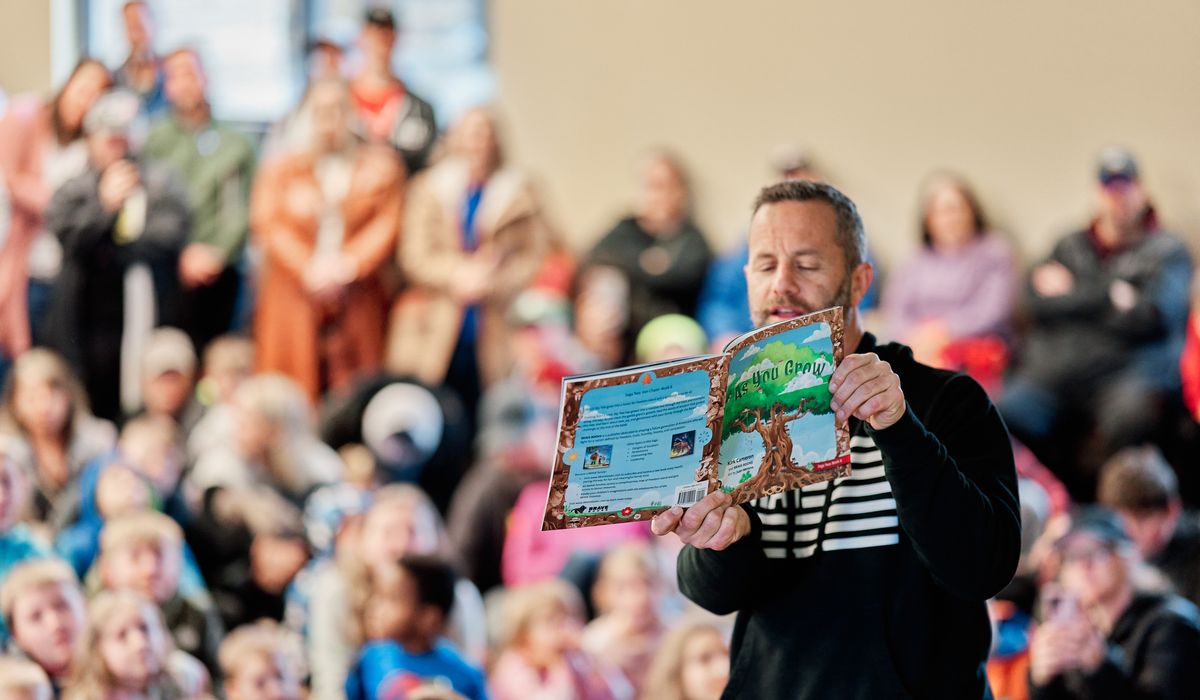


Literacy experts say it’s time for parents to get kids reading again as they catch up from two years of pandemic-related learning losses.
Pandemic lockdowns “significantly disrupted” the family routines of small children who advanced in school with glaring social and educational deficits, said Michelle Torgerson, the CEO of Raising a Reader, a literacy nonprofit claiming 300 affiliates serving 200,000 children annually in 34 states.
“Interruptions to learning habits and environments have created a need to reconnect and re-engage children with literacy routines, and social isolation combined with increased, rapidly changing demands for caregivers have created a need for greater social emotional supports,” Ms. Torgerson told The Washington Times.
“If you want your child to be a reader, the two best things to do are read to them and let them see you reading,” said Samantha Hagan Lingad, vice president of programs at United Through Reading, a nonprofit literacy advocacy program for military families.
Students in kindergarten through 12th grade saw steep declines in their math and reading skills amid COVID-19 lockdowns that kept them glued to digital screens for virtual learning, according to the Department of Education. Standardized test scores for some grade levels hit historic lows.
School districts have drawn from an estimated $190 billion in federal pandemic relief money to add class time, hire after-school tutors, assign summer reading books through local libraries and train teachers in phonics. But experts say that’s not enough.
Analyzing the most recent test scores, educational research company NWEA reported in July that the average U.S. student still needs the equivalent of 4.1 months of added instruction to catch up to pre-COVID reading levels.
Ms. Torgerson suggested that children will not make up that lost ground without older family members reading to them — and with hard-copy books, not eBooks.
“What we have learned from parents is that while digital learning can influence and support a child’s education, nothing replaces the in-person book cuddling and daily shared reading habit between caregivers and children,” she said, noting that families often complain about “screen fatigue.”
Her Raising a Reader nonprofit recommends that parents read with their children for 20 minutes daily, five days a week.
“As long as they see you reading and know it’s important in your life, they’re going to imitate that behavior,” said United Through Reading’s Ms. Hagan Lingad.
Funded with private donations, United Through Reading said it has sent free books to more than 3 million military families with children up to age 18 since 1989. On request, the group also records videos of parents stationed overseas reading books for their children back home.
While many parents struggle to find time for reading, Ms. Hagan Lingad said even five to 10 minutes a day can help.
She suggests letting children pick reading material that both generations enjoy and focusing on the interaction rather than finishing a set number of pages.
Whether families read together about dinosaurs or superheroes, literacy experts say any effort will benefit a child.
And Lance Izumi, senior director for education studies at the right-leaning Pacific Research Institute in California, said parents would be wise to take responsibility for their children’s reading skills.
He pointed to national data showing that traditional public school enrollment dropped by 1.1 million students in 2020-2021 as more families switched to private schools, homeschooling and charter schools to avoid campus lockdowns.
“Parents can provide a safe and peaceful learning environment for their children, and that’s a huge plus for children in schools with daily disruptions,” Mr. Izumi told The Times.
For more information, visit The Washington Times COVID-19 resource page.
• Sean Salai can be reached at ssalai@washingtontimes.com.
